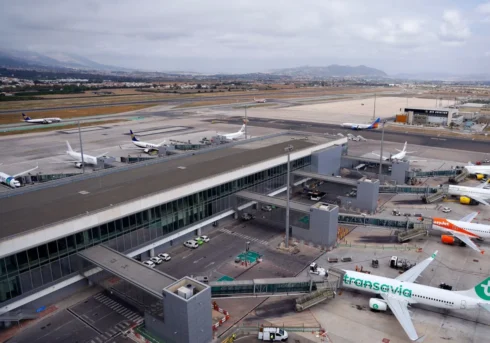Have you been feeling (and suppressing) the travel bug itch for more than a year now, but have been unable to actualize your desires due to the current state of global affairs? Well, the good news is that laws and regulations are slowly changing in some countries as far as tourism restrictions are concerned. Spain is one of the first countries to propose and implement new tourism guidelines for tourists considered low-risk. Spain was hit hard by the devastating effects of the virus and this proposed relaxing of measures brings with it promise and new adventure. The world is slowly trying to emerge from the sheer madness that has been the last 16 months since the beginning of the COVID-19 pandemic, and so what does that mean for you as a tourist?
Travel has slowly started to open up in some places, with Spain launching a plan to reopen safely for tourism. Their goal is to start accepting vaccinated travelers from countries outside of the European Union (EU) that are considered low-risk, and/or provided that they can provide a negative PCR test. This will allow tourism to stimulate the country’s damaged economy (like many other once-tourist hotspots around the globe). Like many new-normals we have become accustomed to in the pandemic world, tourism is going to be no different. Let us look at some of the important considerations for tourists planning to visit Spain once it has reopened.

How Will Traveling In A Safe Way Look?
The first foreign tourists to Spain are likely to have higher hygiene standards and may travel more conservatively than before the pandemic. Travel insurance providers, for example, have recently seen an uptick in sales, with many tourists specifically citing Covid-19 concerns as their reason for purchasing travel insurance. While things are certainly more ‘under control’ than they were mere months ago, there are continued risks that come with traveling, both related and unrelated to the virus. There are many major global insurance providers to choose from, like World Nomads, for example, that are offering reliable and affordable ways to minimize your health and financial risks while traveling abroad. Going this route certainly gives you one less thing to worry about. Some governments are strongly advising citizens to purchase travel insurance if intending to travel, and now more so than ever. After all, who wants to spend their vacation in Spain stressed about all the eventualities, when you could rest assured (and insured) that you will be covered in the event of the, hopefully, unlikely. That said, it is important to stay flexible and open to a change of plans at any given moment since the virus has taught us that we do need to expect (and accept) the unexpected at times.
Even though the opening of the Spanish borders for holiday purposes is an exciting thing, travelers are advised not to forget the necessary safety precautions needed to minimize the risk and spread of the virus. Mask-wearing, regular hand washing and sanitizing, wiping down surfaces, as well as avoiding overly crowded indoor spaces are advised. Consider these factors when choosing your means of transport. Opt for larger, more ventilated options like open-air buses or bicycles, instead of busy metros and taxis. These recommendations will likely be the norm for years to come. Instead of being critical and pessimistic about these adaptations, we should rather rejoice in the fact that we can enjoy the freedom of movement once again.

Who Is Considered Low-risk?
Spain opened its borders to tourism to some countries from the EU as early as mid-2020 to try and repair some of the tourism-related damage. This was before vaccination trials had been completed, and thus they had to be selective of who they admitted. Certain countries were, and continued to be banned due to their high rate of infection. Now that countries are rolling out the vaccine, with some at a quicker pace than others, Spain has decided to admit vaccinated tourists from certain countries who have got proof of their shot in the form of a card or certificate that they must have obtained at least 14 days before arriving.
The vaccines must have been approved by the European Medical Association and those included are Pfizer, Moderna, and Johnson & Johnson. Children do not need to be vaccinated, provided their parents are and they have a negative PCR test. Children below the age of 6 are not required to have a test. These allowances are currently in place for certain countries in the EU and beyond, including the US. Tourists from low-risk countries like New Zealand, Japan, Rwanda, and Australia are some of those that will also be able to enter without restrictions. Tourists have to fill in a QR code health declaration on arrival, and the negative PCR test can be no older than 72 hours. Some tourists are also required to provide antigen tests.
Do I Need To Quarantine On Arrival?
At present, mandatory quarantine is not required for visitors entering Spain, although some countries like Brazil and South Africa remain banned. In certain cases, there may be government-required quarantine measures for some individuals entering the country, but these are on more of a case-by-case basis. The country is understandably cautious of admitting entry to travelers from countries with novel virus mutations that are showing to be even more contagious and infectious than before. Of late, the UK and South Africa were considered to be responsible for a mutation. More recently, India and other countries from SouthEast Asia are considered to contain the riskier strains.
What Are My Visa Options For Entering Spain?
For residents of the EU, visas to enter Spain are not required. Travelers from further afield, like the US and UK, are permitted to enter Spain for up to 90 days without needing a visa. Nationals from countries in Africa, Asia, and parts of South America are still required to apply for a Schengen Visa (of which Spain is one of the countries in the Schengen region). If you would like to stay for longer than 90 days in Spain, there are some options for work permits you can apply for, provided that you meet certain legal criteria. While Spain used to offer more flexible ‘digital nomad’ options for freelancers, regulations have tightened up in recent years and you need to ensure you are following all the required guidelines, otherwise, you could be significantly fined, deported, and even banned from entry.
Why Visit Spain?
Spain is a vast country (the largest in Southern Europe) with much beauty and variety to offer. From mountains to coastlines, to cuisine, to vineyards to culture to music to history and architecture, there is much to behold. People know it to be a country of romance, siestas, and dancing. Picture outdoor tapas meals in cobbled street squares, steaming dishes of paella, jugs of sangria, with fresh seasonal fruits aplenty. There are markets and museums and much to see and do. This is why Spain was voted in 2019 as the second most visited country in the world with 84 million annual tourists. The coronavirus pandemic has slashed these figures, which is part of the reason they are opening up safely and responsibly to allow the tourists to return.
How Has Spain Handled The Pandemic?
Spain was sadly one of the countries in Europe worst affected by the pandemic with a total of 3.7 million Covid-19 cases and 80,000 deaths. They also implemented one of the strictest lockdown measures in Europe at one point. The country saw the peak in infection rates during January 2021, however, in more recent times, there was a marked drop in new cases. At present, 19% of the Spanish population has received both vaccine doses. Spain has been heralded as the 6th fastest country in Europe in terms of the vaccine rollout, and there are continued plans to speed up and increase quantities. It is believed that the country is well on its way to achieving herd immunity. The country is determined to put this virus and its devastation behind it. Opening up restrictions to tourism is a major step in this direction.
What we have learned from the Covid-19 pandemic is that the unexpected can happen at any given moment. That is the reason the Black Swan theory exists. This is the theory that the surprising can unexpectedly take place, have a significant influence, and then be analyzed with the advantage of hindsight. One minute things can feel normal, and within moments, the world can come to a grinding halt and feel like everything is upside down. Travel and tourism as we know it can become complicated, expensive, and riskier than before.
However difficult the recent months have been for populations around the world, we are seeing glimmers of hope crop up. The loosening of travel restrictions in Spain is one of these very bright glimmers. While things might still feel slightly unnerving, there are ways to minimize your risk and practice safe travel during the pandemic. Hopefully, this guide has provided you with some insight into Spain’s plan to reopen tourism in 2021. Let us continue to enjoy the pleasures of life, such as travel while incorporating safe and responsible measures.
Click here to read more Travel News from The Olive Press.








